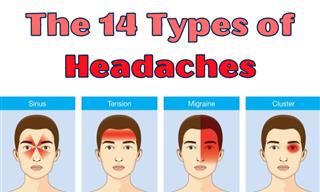1. Trouble with Verbal Communication

Paul Wang, MD, senior vice president and head of medical research at Autism Speaks, says that “while babies hit language milestones at various times, if there is a delay beyond certain ages, it’s important to seek professional evaluation. Potential autism symptoms include no back-and-forth gestures such as pointing or waving; no words by 16 months; or no meaningful two-word phrases by 24 months.
2. Challenges with Social Reciprocity
Healthy young children will show their connections with others by sharing a smile, a hug, or a knowing look. If your kid isn’t giving off big smiles or joyful expressions by the time they’re six months old, it could be a sign of autism.
Eye contact might also be hard for people with ASD as it affects their ability to read and interpret other people’s facial expressions. Dana Watternberg Khani, Med, senior consultant and autism expert for Autism Friendly Spaces, says that “many children with autism have a hard time relating to others, so they may seem more interested in objects than people.” For example, if you show your child a picture of a ball, he might focus more on that than making eye contact with you.
3. Loss of Speech or Social Skills
According to research, regression is common among children who have ASD. Dr. Wang suggests that “any child who is sick or upset might show a couple of days of decreased language and communication, but if the loss of skills lasts more than a few days, it’s important to seek out an expert to figure out why.”
Studies have shown that about one-third of children with autism experience some kind of regression, but the majority of these children don’t have typical development to start with. Instead, they have early delays and lose some skill that they had attained.
4. Repetitive Behaviors
According to Autism Speaks, “hand-flapping, rocking, jumping and twirling, arranging and rearranging objects, and repeating sounds, words, or phrases,” are all common behavioral characteristics of ASD.
5. Intense Rigidity

Children who have ASD can become fixated on order when it might not seem to have a purpose. For example, during play time, they might spend hours lining up their toys and sorting them by color or size instead of playing with them.
Routine is somewhat important in life and we all get a little uncomfortable if we have to stray from our usual way of doing things, but if your child really has a meltdown when asked to do something different, it’s a clear sign of a problem.
In young children, this might result in tantrum-like behavior. As children get older, autism symptoms might reveal themselves in repetitive behaviors such as pacing or wringing hands together when anxious.
6. Strong Preoccupations or Obsessions
According to Autism Speaks, extreme interest and deep knowledge of an unusual subject matter can also be a sign of autism. This could be an obsession with fans, vacuum cleaners, or toilets and expert knowledge in astronomy or Thomas the Tank Engine. Older children and adults suffering from autism might develop a preoccupation with dates, numbers, symbols, and science topics.
7. Taking Things Literally
People on the autism spectrum often have trouble inferring or understanding abstract concepts and idioms. Khani recalls that when she taught second grade, she asked a child to toss her a paper clip and then suddenly there was a paper clip bouncing off her head. Similarly, if, for example, you ask a child to “take a seat,” they might ask where they should take it.
8. Associated Conditions
Khani notes that “it’s common for people on the spectrum to also be diagnosed with other disorders.” According to Autism Speaks. Diagnoses that often accompany ASD include gastrointestinal disorders, sleep dysfunction, seizures, sensory processing problems, and pica (the tendency to eat things that aren’t food.)
 Go to BabaMail
Go to BabaMail




























